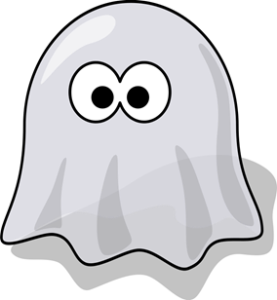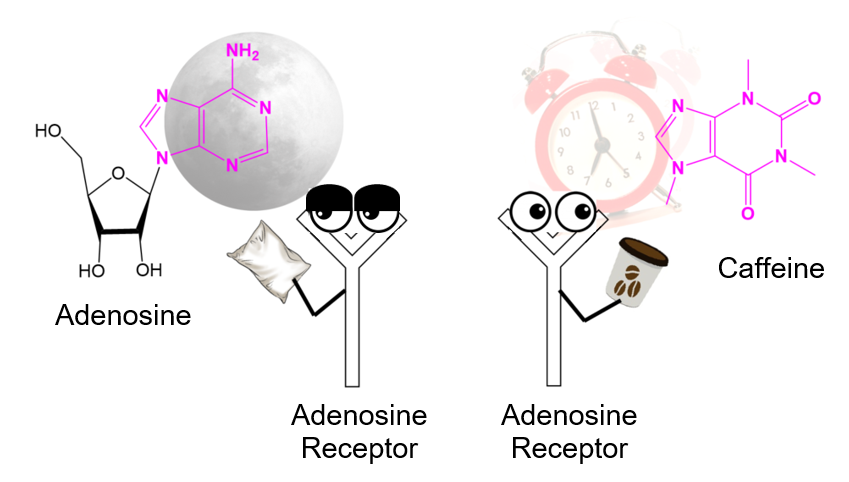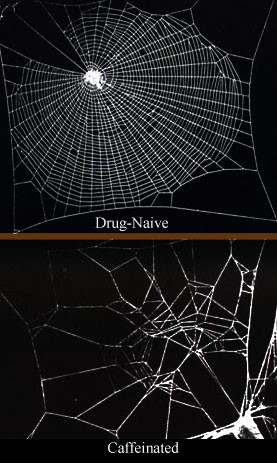
Completely legal and unregulated, caffeine is a staple of bustling culture, from office workers with travel mugs making a grab for their suitcases at 6 am to journalists refilling their “Happy Holidays” mug at midnight in order to make a deadline. No matter the profession, so many of us rely on regular doses of caffeine to make it through our daily tasks. If you are anything like me, you are about as peppy as a World War Z zombie without the morning caffeine fix and late afternoon recharge. From a neuroscience viewpoint, caffeine actually plays the bully and practical joker on our brain, tricking it into seeing something that is not there and only convincing us that we are awake and alert.
Not surprisingly, caffeine stimulates the brain. Scientists classify it as a much milder form of amphetamine, a common ADHD medication intended to increase alertness and attention span. However, unlike amphetamine, caffeine does not prompt our body to produce molecules that keep us awake. Instead, it blocks natural molecules from doing their job and making us drowsy.

It starts with a case of mistaken identity. After being awake for a while (without caffeine) everyone will eventually become drowsy. Whether it be mid-day or midnight, this drowsiness naturally occurs because adenosine (a chemical needed for proper sleep regulation) binds to adenosine receptors in our brains and slows down brain cell activity. Now, caffeine looks suspiciously like adenosine (see right). Because adenosine and caffeine look so much alike, adenosine receptors cannot tell the difference between the different molecules. Therefore, caffeine comes in as the bully in your brain and easily outcompetes adenosine in binding to adenosine receptors. Once caffeine has occupied all of the receptors, adenosine’s sleep-inducing action is blocked and brain cells speed up, causing us to feel more awake!

But caffeine is not done yet. It also brings in “reinforcements” in the form of another natural molecule, adrenaline (not to be confused with adenosine). With caffeine around, brain cells are more active than normal and in response, more adrenaline is produced than normal. You may have encountered an “adrenaline rush” in high pressure situations such as right before a presentation, during a race, or after a big game. Imagine that feeling when your heart races, your muscles tighten, and your pupils dilate. Caffeine intensifies this feeling. Adrenaline may make us feel more awake and alert, but we may also feel jittery, irritated and nauseated, decreasing our overall performance. Check out how poorly spiders work when given caffeine!
Why is it so hard to drop this unnatural bully of our brain? Sudden removal of daily caffeine from your diet often results in “caffeine withdrawal”. Listed as a mental health condition in “Diagnostic and Statistical Manual of Mental Disorders”, caffeine withdrawal manifests as irritability, depressed mood, and terrible headaches. When adenosine binds, blood vessels in the brain open to allow better oxygen flow to the drowsy brain. However, caffeine produces the opposite effect and blood vessels become smaller. By reducing one’s normal caffeine intake, blood vessels that are normally closed will open. When this occurs, it takes a while for your brain to re-adjust to the increased oxygen flow, causing the withdrawal symptoms.
Bully or not, I think most people will agree that caffeine was a lifesaver at one point or another and can have positive effects when consumed in moderate amounts. The Food and Drug Administration considers 400 milligrams/day safe for healthy adults (if you’re counting, that’s 1-2 cups of coffee, almost 3 cups of tea, or around 4 sodas). This amount is less for children, teens, and pregnant women. While caffeine in proper doses is considered safe, its stimulating effects may have a greater impact as age and health issues change.
Peer edited by Jaime Brozowski, Murrium Sadaf, and Sumiyah Enayet.
Follow us on social media and never miss an article:
Hello,
I was going through your website and came across this page: http://www.thepipettepen.com/starring-caffeine-as-the-bully-of-the-brain/
The article is nicely written and I noticed you have linked to one of my favorite resources: https://www.medicinenet.com/caffeine/article.htm
Just wanted to give you a heads up that I created an article on “25 Side Effects of Caffeine”.
It’s thorough, backed by research and up-to-date: https://bigbluetest.org/negative-effects-of-caffeine/
Might be worth a mention on your page.
Also, I’ve shared your post on Twitter. Keep up the awesome work.
All the Best
Sarah